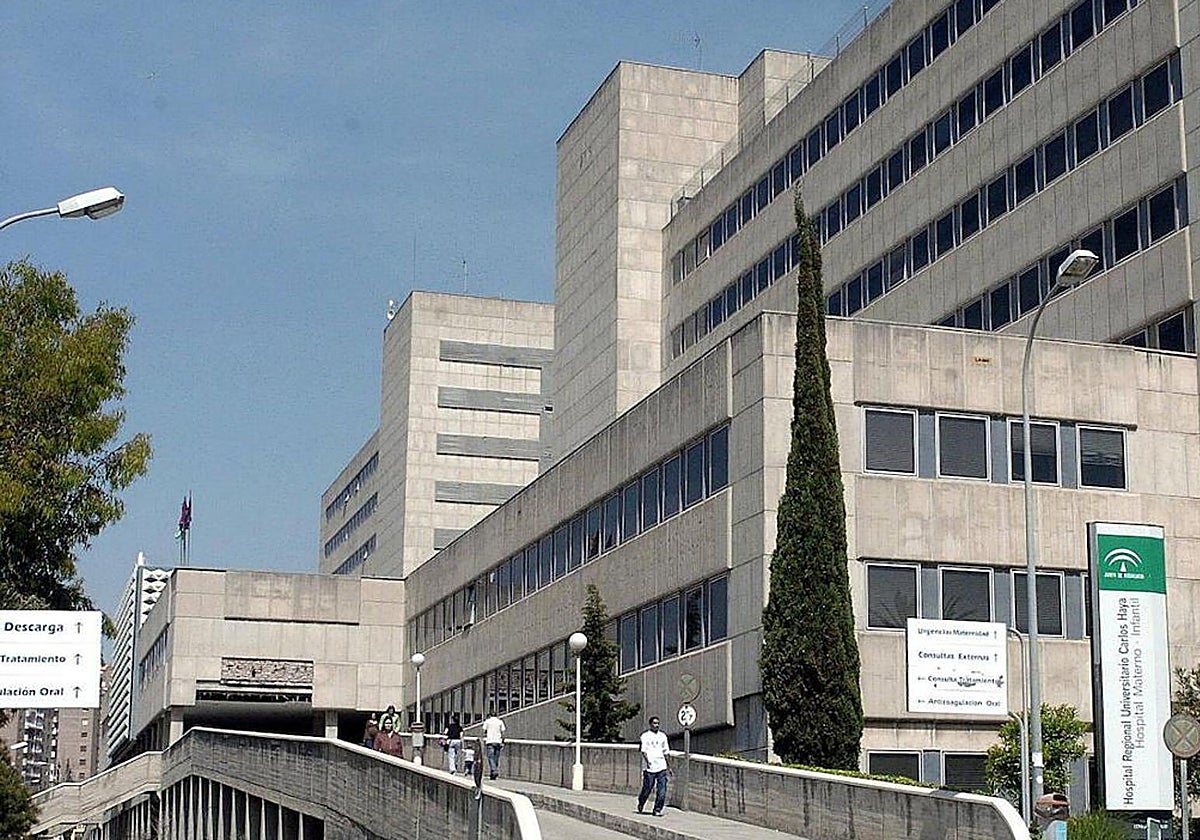Major Malaga hospital 'on point of collapse' with waiting lists of up to three years
Health staff claim that the main problem is the "poor management" of the available resources and are calling for urgent changes
The Hospital Materno-Infantil in Malaga city is on the verge of collapse, according to staff at the health centre and the CSIF union. Among the main issues are the waiting time for a gynaecological check-up (since 2022 for some women), delays in fertility tests and a queue of more than 700 ultrasound procedures awaiting an appointment slot. These are only some of the "extreme" situations that are taking place at the hospital. The diagnosis given is the "mismanagement" of available resources.
In a statement sent to the media, CSIF - the Andalusian civil servants' union - stated that there are currently more than 4,000 patients waiting for an appointment. This figure represents those who have been referred by their family doctor from all across Malaga province since April 2024. In addition to this, more than 5,000 gynaecological check-ups have been pending since 2022 and 2023, and more than 700 high-resolution ultrasound scans have been waiting for an appointment slot since November 2023. "There are also unacceptable delays in basic fertility tests (EBE), with cases pending since September 2023, which blocks access to assisted reproduction consultations and paralyses treatments," CSIF representatives said.
Furthermore, the union has stated that, in some cases, the deadlines and guarantees set by the Andalusian public health service (SAS) are being missed. Some requests - such as those for gynaecological ultrasounds - are not being processed digitally, meaning patients do not receive a copy, preventing them from lodging a complaint in accordance with Royal Decree 96/2004.
CSIF also reported that the endometriosis unit is suffering a "worrying" collapse, as essential tests, such as MRI scans and high-resolution ultrasounds, can be delayed for more than a year, "preventing the diagnosis and timely treatment of this chronic and degenerative disease". Such a delay can aggravate the pathology of the patients, complicating the necessary surgical interventions.
This "serious deterioration in care" is compounded by the decline in the quality of obstetrics care, where delays in appointments during the corresponding week of gestation have soared during holiday periods. "As a result of the disastrous hospital management, the service has gone from a rating of 7.6 in 2020 to a 4.48 in 2023," the union said.
Planning
But why is this happening? Unlike the situation in other services or in other health-related areas, the problem here is not lack of resources or staff, but of poor management. Both CSIF and Materno workers have confirmed the lack of advanced planning taking place. "In 2024, only 13 basic fertility consultations have been opened, when they should be open from Monday to Friday, which has meant the loss of more than a thousand appointments in this speciality".
"In addition, gynaecology consultations are reserved and cancelled without clear criteria, depending on the number of professionals available. Some specialities, such as endometriosis or IUDs, only work intermittently, leaving patients without guaranteed access to healthcare and exacerbating the waiting list," workers said. They stated that both the hospital management and the sub-directorate are "perfectly aware" of what has been going on for years. "But we don't know why they don't take action," they said.
CSIF members said that they have tried to address the state of collapse before the medical sub-directorate of the hospital several times over the last year, the last one being just a few weeks ago. "Instead, it has implemented a system of telephone consultations that highlights the magnitude of the problem, artificially reducing the number of patients waiting for appointments, without providing a real solution and further delaying care," they said.
New measures
Without denying the data provided by workers, the Junta de Andalucía regional government boasted of the measures put in place. It stated that the gynaecology and obstetrics service of the Materno has recently implemented a series of changes to improve patient care. Among the measures adopted, it highlighted the "prioritisation of first appointments, the increase in the number of appointments per consultation, the opening of long-term monitoring and the introduction of telephone consultations". According to the Junta, the measures seek to "improve the experience of the first face-to-face appointment, allowing patients to attend with prescribed diagnostic tests to speed up possible diagnoses and prioritise urgent cases". However, employees strongly oppose this practice.
The regional health ministry also spoke of the creation of a protocol in collaboration with primary care professionals, to improve efficiency in referrals and resource management and ensure that these modifications are having a "significant impact" on the experience of users, providing quality care for all of them. Workers consulted did not only deny the existence of such an approach, but also stressed that one of the main problems is that the Hospital Materno Infantil works "with its back turned" to primary care.
Finally, the Junta stated that the reproduction unit has developed a preferential care programme for basic fertility tests. "However, the possible delay in high-resolution ultrasound studies is due to the reorganisation of the testing tasks of the patients' centres of origin. In spite of this, the performance of such tests at the centre itself has been promoted."

